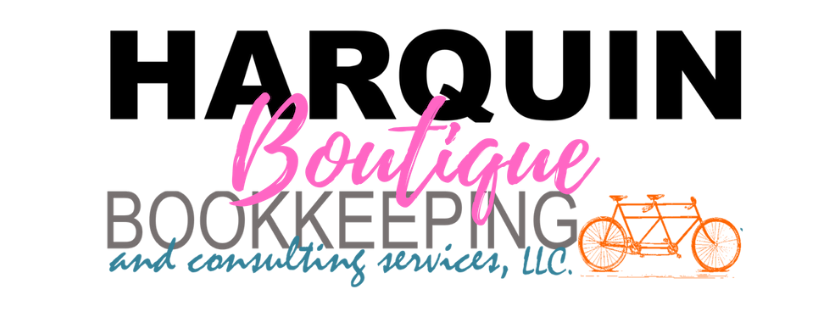Ep 12 | What To Do Year-Round for a Smooth-Sailing Tax Season
Imagine next tax season rolls around and you feel READY and prepared - no more scrambling or worrying - and you're saving hard-earned money. In this episode, Lindsey Roberts, the founder of HarQuin Boutique Bookkeeping Co, breaks it down for you - and tells you exactly what you need to do to prepare all year for season.
Look at your numbers.
Bookkeeping is not just for tax time. It can also help you be prepared for taxes. We always recommend that our clients meet with our CPA’s at least twice a year, but definitely once or twice before tax season hits so that you’re changing things as needed and ready for taxes. It’s not fun to have a big number fall on your lap - and find out you owe $30k. You can be prepared - just by looking at your reports and understanding your numbers + working with your CPA looking at the numbers. We offer free Reports Trainings (you can sign up for next month’s session!) for our clients because we know how valuable this is. For example, in our trainings, we support boutique owners in knowing all the write off’s they can do - because we specialize in the boutique industry and understand what is allowed in a way a regular bookkeeping service wouldn’t know.
Pay your quarterly taxes.
Pay taxes in a forward thinking mentality as opposed to retroactively. If you forgot to make estimated payments, you will suddenly owe a large amount and not be ready to pay it in full. If you pay your quarterly taxes, you’re estimating your number and pre-paying so you don’t have to pay as much at the end of the year. It’s essentially what they do for W-2 employees where they take an estimate out of every paycheck. Because you’re self-employed you’re doing that on your own. You don’t really need a CPA do it, but ideal for a CPA to give you direction - if you don’t have a CPA to give you direction, you can just base it off what you owed last year, so if you owed $12k, you can make $3k payments each quarter. You will get a refund for whatever you overpay. If you are making estimated payments, tell your CPA so they can deduct that off the amount you owe.
Put systems in place.
Keep business and personal expenses separate. Otherwise this will bog down the bookkeeping process. You don’t want a personal expense show up as a business expense, or worse a business expense show up as a personal expense so you don’t get the write off. If your bookkeeper can work off the assumption that everything coming through your account is business, then everything can easily be categorized.
Mileage is also a write off. Many boutique owners travel for business and you can track your mileage because you will get reimbursed for this. Every year has its own mileage rate and you can just Google your year and mileage rate. This isn’t just fuel cost, but also mileage cost - sometimes one will be a higher write off than the other and your CPA will want to see both.
Cash expenses can easily be forgotten. There’s no tracking system with cash. We recommend you come up with a system that works for you to track all your cash expenses. For our clients, we have a Google sheet that they use to track when they spend something with cash right when it happens. If you can avoid cash, do it. Or be diligent with keeping good records. The IRS likes chasing cash. So a system is essential.
If you want to dive deeper in all of this join us in Boutique School - a membership training with our boutique bookkeeping experts to equip you in how to run a business.

